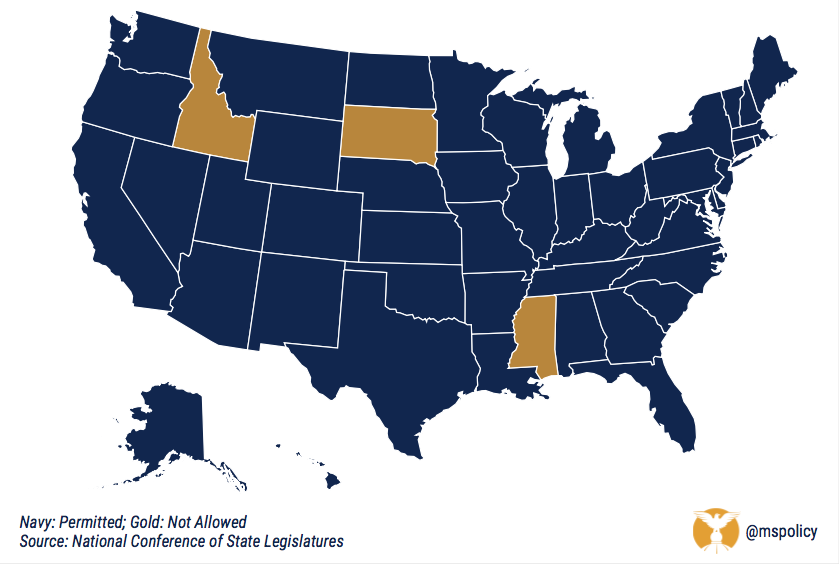Next year, the legislature will be able to act upon any recommendations or findings, or perhaps draw their own conclusions. But whatever they decide, we won’t be blazing any trails with hemp.
In fact, since the last task force meeting in July, the tiny number of states where hemp remains illegal became smaller. In July, Ohio Gov. Mike DeWine signed legislation legalizing the production of hemp in the Buckeye State. This follows the states of Georgia, Louisiana, and Texas legalizing industrial hemp earlier this year.
The states where hemp production remains illegal: Idaho, Mississippi, and South Dakota. And it remains illegal in South Dakota only because Gov. Kristi Noem vetoed a bill that would have made production legal.

We have seen a massive move toward hemp legalization at the state level after the 2018 Farm Bill expanded the cultivation of hemp. Previously, federal law did not differentiate hemp from other cannabis plants, even though you can’t get high from hemp. Because of this, it was essentially made illegal. But we did have pilot programs or limited purpose small-scale program for hemp, largely for research.
Now, hemp cultivation is much broader, with the Farm Bill allowing the transfer of hemp across state lines, with no restrictions on the sale, transport, or possession of hemp-derived products. There are still limitations, but most states have taken the opportunity to find new markets for those who would like to cultivate hemp. Just not Mississippi.
So as a task force brings in experts to debate the merits of hemp in Mississippi and listens to opponents in law enforcement make claims about how they would be unable to differentiate between hemp and marijuana, the rest of the state can look on as hemp is now legal for 99 percent of the country. And we can wonder why something so easy can be so difficult for Mississippi.